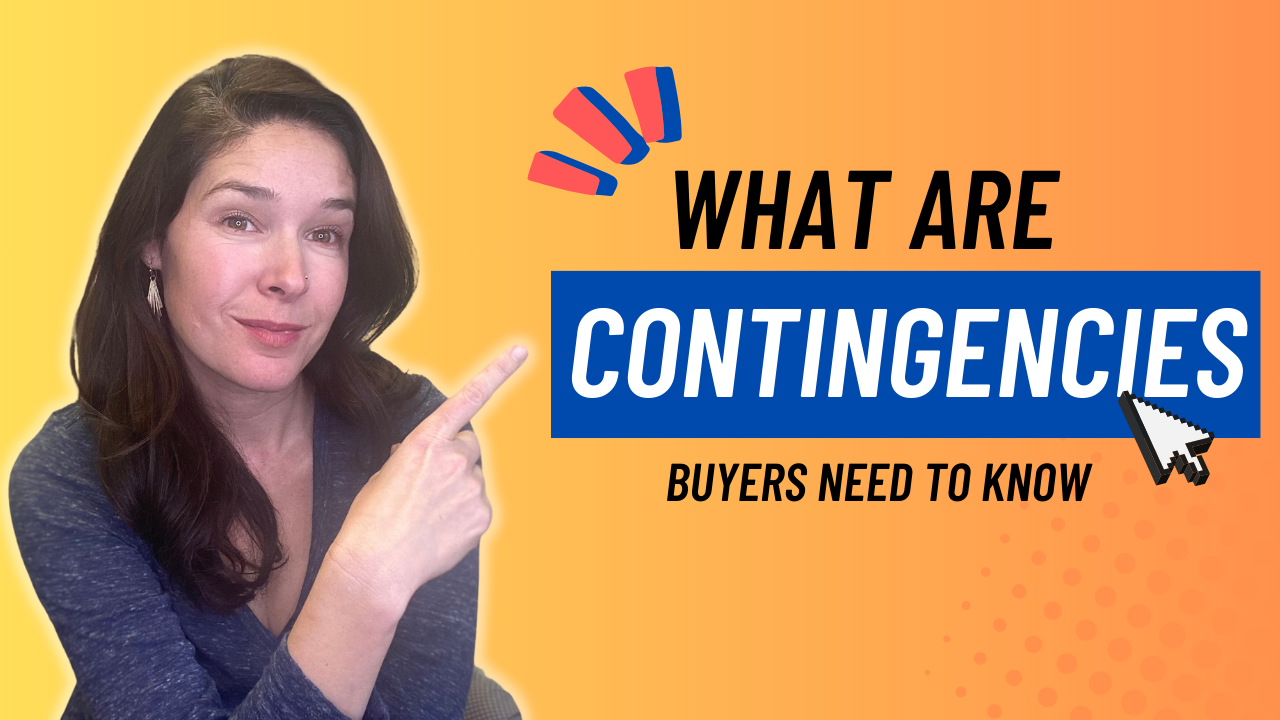When you decide to make an offer on a property you will need to decide what to include in that offer. These items are negotiable between the Buyer & Seller. In a competitive Sellers market (which we are currently in an EXTREMELY competitive market), the Seller is going to want the very best terms.
The first two are pretty self explanatory:
1) Purchase Price
2) Escrow Deposit (this binds the contract & goes towards your cash due at closing–it also is what keeps people from simply terminating & walking away—the higher the deposit the more appealing to the sellers)
But there are additional terms, which we call Contingencies, that you need to decide whether or not to include or to Waive as part of your offer or Contract to Purchase.
There are typically three:
1) Mortgage Contingency: you have a preapproval but you have not actually applied for a loan. In order to apply for a loan you have to have a property under agreement (a contract). Once you apply for the loan the lender will go through all of your documents (bank statements, tax returns, pay stubs, credit report) to make sure that you qualify for the loan. They will also have an appraisal of the property to make sure that it’s at market value. Once all of these items are checked off and approved the lender will issue a Mortgage Commitment Letter which states that they will fund the loan. Once that’s issued the attorneys & realtors can schedule the closing. We need that Mortgage Commitment Letter by a specific date that is stated on the contract. This entire portion is referred to as the Mortgage Contingency because if your loan is denied you can terminate the contract & get your deposit back as long as that denial is on or before the pre-agreed upon date. Cash buyers waive this Contingency because they do not need a mortgage. Some buyers decide to waive the mortgage contingency in order to make their offer more appealing to a seller—BUT that means that you risk losing your deposit if you get denied the loan.
2) Inspections Contingency: a standard Purchase Agreement has an inspection period of 10 business days for a buyer to conduct any and all inspections. If you are not satisfied with the inspection (or if you just change your mind about the house) you can terminate the Agreement & get your full deposit back as long as it’s within those 10 business days. Some buyers will choose to reduce the inspection period as a way to make their offer more appealing to a seller (example—reduce the inspection period to 5 business days). Or some buyer will choose to waive the inspection period completely. You have to be certain that you want this house if you do that! And you have to feel confident that you’re willing to take on whatever work is needed. You can certainly choose to have a home inspection after you close on the house–I always recommend that so that you can go through the house & understand it’s structural & mechanical components.
3) Appraisal Contingency: Cash buyers tend to waive this contingency because they’re not working with a lender. If you are getting a loan & waive the Appraisal contingency it means that IF the appraisal report comes in LOWER than the Purchase Price you will have to make up the shortfall.
Example:
Purchase Price $325k; appraised value $320k—this means you have to make up the difference and put down an additional $5k because the bank will only lend based upon the $320k. Does this mean that the house is not worth $325k? An appraisal is subjective & it depends on the comparative houses that the appraiser used.
If you have the appraisal contingency in place we want the appraisal report back BEFORE your Mortgage Commitment deadline so that if the appraisal falls short we can either:
a) Ask the seller to reduce the purchase price to the appraised value (they do not have to agree)
b) You decide that you still want to proceed & can make up the difference
c) You decide to terminate the contract
You’re driving the bus! I’m providing you the options!
Depending upon the house and the situation you will need to determine what contingencies you require to be met in order to get to the closing table. If we’re not competing with any other offers then we have more opportunities to include strict contingencies in our offer. If we are competing with other offers then you need to determine what you absolutely require and we will craft the offer accordingly. Want more on this topic! Head over to my YouTube channel or pick up the phone and call me!



